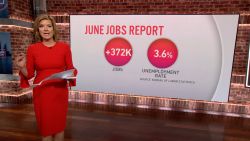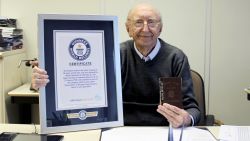Your resume can be the first impression you make with a potential employer. So you want to put your best foot forward when crafting one.
“This is a storytelling exercise about what makes you so compelling,” said Debra Wheatman, certified resume writer and career coach. “You need to look at this as a marketing tool for yourself. Take a step outside of yourself and ask how you want the world to perceive you.”
Here’s what should and shouldn’t be part of your resume:
Don’t: Get too fancy
The top of your resume is the most valuable real estate. So, make sure recruiters and hiring managers can easily find what they need.
“A creative resume is working against you,” said Stacie Haller, a job search coach. “You have to get someone’s attention in six seconds and recruiters know where to look to get information and that’s where we want to find it. We don’t have time to figure you out.”
She advised including your name, the city and state you live in, your email, phone number, LinkedIn profile and a value statement/summary if you’ve been in the working world for a while.
Do: Sum up your skills and brand
A summary at the top of your resume is a way of highlighting your skills and creating a brand for yourself.
Those who are new to the job world could lead with their education instead of a summary, Wheatman said, but if they want to include a summary she suggested it could be something like: Recent graduate with a degree in marketing and skills applicable to XYZ industry.
She added that early career job seekers can also tout their communication and collaboration skills.
For more seasoned workers, she advised having an executive summary that details the value you bring to a position or company, including examples of successes in your current or previous roles.
“It’s a powerful brand statement with an example…think of it as: to this position I bring what,” she said. “You want something specific and measurable up there that is an immediate example of something you’ve done that illustrates how you drive results.”
Don’t: Include an objective
One thing that shouldn’t be at the top of your resume: an objective.
“Don’t tell a company what you are looking for, you need to share with them information about how you can impact their environment,” said Wheatman.
Do: Write for the robots
Adding the position you are applying for at the top can help get your resume past applicant tracking systems, according to Demisha Jennings, a certified resume writer.
These systems look for specific keywords to find potential candidates.
She suggested identifying the keywords used in a job description and making sure they are also included in your resume. Often the title of the position and required skills are some of the keywords the tracking systems are looking for, she explained.
“If you don’t use those keywords and phrases from the position description, it’s harder to get past the applicant tracking system,” she said.
Do: Be specific
You want to be clear with your experience and make sure to detail your skills and qualifications for a job.
“Earlier in your career, on your resume you have to show what you know how to do,” said Haller. “Later in your career, you have to show what the value is of bringing you in as a senior leader.”
She added that describing quantifiable successes, whether it’s in regard to sales, growth, benchmarks or savings, can help show your impact and help attract more attention from recruiters.
“The BS meters are out with resume reviewers…when [resumes] are very general you aren’t going to get a call,” she said.
Don’t: Include anything and everything
Your resume shouldn’t be a data dump of everything you’ve ever done.
One way to format your experience is to list the position, company and tenure followed by a few lines describing your role and then a few achievement-based bullet points with more specific details, suggested Jennings.
“The bullet points should make you stand out,” she said. “The first few sentences highlight the stronger and more complex things you do in the role.”
And list your bullet points in order of importance, suggested Haller. “Stack your bullet points with things you want people to see…[recruiters] are probably only reading the first one.”
Recent grads that don’t have a lot of work or internship experience and are looking to fill out their resume can add volunteer involvement, related extracurricular activities, and applicable projects.
“Just because you aren’t paid for something doesn’t mean it’s not work,” said Wheatman.
Don’t: Lie or have mistakes
It’s okay not to have all the skills or requirements listed on a job posting, so don’t make untrue claims about yourself on your resume.
And be sure to scrutinize your resume for any spelling or grammar errors before hitting send.
“One error or typo on a resume might just take you out of the running,” said Haller. “Make sure somebody else looks at it.”


























